Adam AbateProfessor of Bioengineering and Therapeutic Sciences, University of California-San Francisco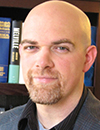 Dr. Adam Abate is a physicist who brings a unique research program to UCSF. His research employs microfluidics for high-throughput biological applications. He has developed microfluidic methods to create emulsions that consist of droplets of very precise and consistent sizes and to manipulate the processing and contents of individual droplets in different ways. The droplets are used to create micro-compartments, which can be loaded with single cells and other active materials, such as drugs, nutrients, and assay reagents. By chaining together different microdevice components, the droplets can be used as tiny "test tubes" for performing chemical and biological reactions. This allows multiple, independent reactions to take place at the rate of thousands per second, while using minuscule amounts of total reagent. Adam is using this approach for directed evolution, genetic sequencing, and cell sorting. |
David BeebeClaude Bernard Professor of Biomedical Engineering, John D. MacArthur Professor, University of Wisconsin-Madison David J. Beebe is the Claude Bernard Professor of Biomedical Engineering, a University of Wisconsin John D. MacArthur Professor and a Professor of Pathology & Laboratory Medicine at the University of Wisconsin-Madison. Originally trained in Electrical Engineering, from 2004-2009 he completed a 5 year NIH funded retraining in cell/cancer biology. From 2012-2017 he co-led the Tumor Microenvironment Program in the University of Wisconsin Carbone Cancer Center. He has published >350 archived journal articles with >44,000 citations (h-index of 92). David’s current cancer related research interests center on the understanding and application of micro scale cell-based assays to understand cancer biology and response to therapy to improve cancer diagnosis and monitoring. Additional research topics include novel micro scale technology development, infectious disease biology and diagnostics. He has also co-founded several biotechnology companies. |
Sangeeta BhatiaJohn J. and Dorothy Wilson Professor, Massachusetts Institute of Technology Sangeeta N. Bhatia MD, PhD is an inventor, Massachusetts Institute of Technology professor and biotech entrepreneur who adapts technologies developed in the computer industry for medical innovation. At MIT, she is the John J. and Dorothy Wilson Professor of Engineering, Director of the Marble Center for Cancer Nanomedicine at the Koch Institute for Integrative Cancer Research, and Investigator of the Howard Hughes Medical Institute. Trained as both a physician and engineer, Sangeeta’s laboratory leverages miniaturization tools from the computer industry for medical innovation with applications in liver disease, cancer and infectious diseases. She and her over 150 trainees have contributed to more than 50 issued or pending patents, launched multiple biotechnology companies to improve human health, and published more than 200 peer-reviewed papers. Bhatia was the 25th person in history to be an elected member of all three US National Academies: NAS, NAM, and NAE. She has been honored with the Lemelson-MIT Prize (known as the “Oscar” for inventors), the Heinz Medal, and the Othmer Gold Medal for groundbreaking inventions and advocacy for women in STEM fields. She has presented her vision for the application of engineering solutions to solve medical problems on international stages such as the World Economic Forum, TED, the Gates Grand Challenges, and the Biden Cancer Moonshot. She currently serves as a Trustee at Brown University and Director at Vertex Pharmaceuticals. |
Katherine ElviraAssociate Professor, Canada Research Chair, Michael Smith Health Research BC Scholar, University of Victoria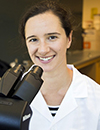 Katherine is the Canada Research Chair in Microfluidics for Drug Discovery and Health Care, a Michael Smith Health Research BC Scholar in partnership with the CLEAR Foundation, and an Associate Professor in the Department of Chemistry at the University of Victoria, Canada. Katherine received her undergraduate integrated Bachelor's and Master’s degree in Chemistry from Imperial College London in 2007. She started working in the field of microfluidics during her PhD (2012, Imperial College London). She then moved to ETH Zürich working firstly as a Postdoctoral Researcher and then as a Senior Scientist in the Institute for Chemical and Bioengineering. She moved to the University of Victoria in 2017. |
Mandy EschProject Leader, National Institute of Standards and Technology (NIST) Mandy B. Esch is a project leader in the Microsystems and Nanotechnology Division of the National Institute of Standards and Technology. She received a Diploma (equivalent to the American M.S. degree) in Biology and a Dr. rer. nat. (equivalent to the American Ph.D. degree) in Biotechnology from the Julius Maximilians University in Würzburg, Germany. During her PhD research she developed paper-based microfluidics and microfluidic biosensors for the detection of pathogens. In 2001, Dr. Esch joined the Cornell Nanoscale Science and Technology Facility as life sciences liaison. In 2007, she joined the Department of Biomedical Engineering at Cornell University as a Postdoctoral Research Associate. While there, she developed patents for cell culture on a porous 3D surface and for a multi-organ microphysiological system (MPS). She was part of the team that in 2015 received the Lush Science Prize for designing multi-organ fluidic cell culture systems. From 2015 to 2016 Dr. Esch spent a year as Assistant Professor at Syracuse University (Department of Biomedical and Chemical Engineering), where she taught nanobiotechnology. In August 2016 Dr. Esch moved to NIST, where she is focusing on integrating sensors with tissues-on-chips and multi-organ microphysiological systems. |
Rustem IsmagilovEthel Wilson Bowles and Robert Bowles Professor of Chemistry and Chemical Engineering, California Institute of Technology Rustem Ismagilov was born in Ufa, Russia. He graduated from the Higher Chemical College of the Russian Academy of Sciences, Moscow (1994), before coming to the US to complete his PhD in physical organic chemistry at the University of Wisconsin-Madison (1998). He conducted his postdoctoral work at Harvard University and began his independent research career in 2001, as an Assistant Professor at the University of Chicago, Department of Chemistry. In 2011, he joined the Division of Chemistry and Chemical Engineering at the California Institute of Technology and in 2013 he became the Ethel Wilson Bowles and Robert Bowles Professor of Chemistry and Chemical Engineering. He also serves as the director of the Jacobs Institute for Molecular Engineering for Medicine at Caltech. His lab has developed new approaches to studies of complex chemical and biological networks, and pioneered microfluidic technologies (including droplet-based microfluidics and SlipChip microfluidics) and diagnostic technologies. Current work in the lab includes studies of the impact of the gut microbiome on its host, and development of technologies for rapid diagnosis of antimicrobial susceptibility of pathogens. The work by his research group has been recognized by a number of awards, including the Cozzarelli Prize from the National Academy of Sciences (2007), the NIH Director’s Pioneer Award (2007) and the ACS Award in Pure Chemistry (2008). He was elected a fellow of the American Academy for the Advancement of Science (2010), and was awarded a Burroughs Wellcome Fund fellowship in Innovation in Regulatory Science Award (IRSA) (2015) and a Kenneth Rainin Innovator Award (2018). |
Ravi KapurCEO, AutoIVF Inc. Co-founder, and Director of BendBio Inc., AutoIVF Inc, and SanSimeon Inc. Scientific co-founder of TellBio Inc. Invented, innovated and commercialized high throughput microfluidic systems for clinical medicine and life science. Passionate about solving big hairy problems with exceptional people. |
Abraham LeeChancellor’s Professor, Biomedical Engineering & Director, Center for Advanced Design & Manufacturing of Integrated Microfluidics, University of California-Irvine Abraham (Abe) P. Lee is Chancellor’s Professor of Biomedical Engineering (BME) and MAE at the University of California, Irvine (UCI). He served as department chair for BME from 2010-2019. He is currently Director of the NSF I/UCRC “Center for Advanced Design & Manufacturing of Integrated Microfluidics” (CADMIM). Dr. Lee served as Editor-in-Chief for the Lab on a Chip journal from 2017-2020. Prior to UCI, he was Senior Technology Advisor at National Cancer Institute (NCI), Program Manager in the Microsystems Technology Office at DARPA (1999-2001), and a group leader with Lawrence Livermore National Lab (LLNL). Dr. Lee’s current research focuses on integrated microfluidic systems for precision medicine including liquid biopsy, microphysiological systems, cell engineering, and immunotherapy. His research has contributed to the founding of several start-up companies. He is inventor of over 60 issued US patents and is author of over 130 journals articles. Professor Lee was awarded the 2009 Pioneers of Miniaturization Prize and is fellow of the National Academy of Inventors (NAI), the American Institute of Medical and Biological Engineering (AIMBE), the Royal Society of Chemistry (RSC), the American Society of Mechanical Engineering (ASME), the International Academy of Medical and Biological Engineering, and the Biomedical Engineering Society (BMES). |
Leanna LevineFounder & CEO, ALine, Inc. Dr. Levine, founder of ALine, Inc., is an entrepreneur, technologist, and inventor. She has a unique blend of technical expertise in both bioanalytical science and manufacturing process development. Prior to founding ALine, Dr. Levine developed bioanalytical technology to support life science research. While at Monsanto, her lab led the industry in the application of fluorescence polarization for high throughput screening for novel therapeutics. In 1998 she joined Spectrum Laboratories as Director of Hollow Fiber Manufacture and Product Development. Dr. Levine earned her Ph.D. at Washington University, St. Louis, MO , and her B.S. in Biochemistry and BA in German from the University of Missouri, Columbia, MO. In 2003 she was a visiting scholar at the UCLA Anderson School of Business. In 2000 she was the chair of the Gordon Conference on Bioanalytical Sensors. She is the co-author on a dozen publications, and several patents. |
Noah MalmstadtProfessor, Mork Family Dept. of Chemical Engineering & Materials Science, University of Southern California Noah Malmstadt is Professor at the University of Southern California. He received a BS in Chemical Engineering from Caltech and a PhD in Bioengineering from the University of Washington. Following postdoctoral work at UCLA, he joined the Mork Family Department of Chemical Engineering and Materials Science at USC in 2007. Malmstadt is the recipient of a 2012 Office of Naval Research Young Investigator award. His research focuses on microfluidic strategies to facilitate material fabrication and biophysical analysis. He has pioneered the integration of ionic liquids as solvents in droplet microreactors and the application of microfluidic systems to synthesizing biomimetic cell membranes. Microfluidic analytical techniques he has developed include methods for measuring the permeability of cell membranes to druglike molecules and techniques for measuring ionic currents through membrane proteins. |
Ellis MengShelly and Ofer Nemirovsky Chair of Convergent Biosciences and Professor of Biomedical Engineering , University of Southern California Ellis Meng is the Shelly and Ofer Nemirovsky Chair of Convergent Biosciences and Professor of Biomedical Engineering and Electrical and Computer Engineering in the Viterbi School of Engineering at the University of Southern California where she has been since 2004. She is also the Vice Dean of Technology Innovation and Entrepreneurship. Her research interests include biomedical microelectromechanical systems (bioMEMS), implantable biomedical microdevices, microfluidics, integrated microsystems, microsensors and actuators, biocompatible polymer microfabrication, and packaging. She is a fellow of NAI, IEEE, ASME, BMES, and AIMBE. She serves as the VP of Technical Activities for the IEEE Engineering in Medicine and Biology Society. She is on the editorial board of the Journal of Microelectromechanical Systems and Journal of Micromechanics and Microengineering. She is also an inventor, co-founder of two companies based on her research, and author of a textbook on bioMEMS. |
Sunitha NagrathProfessor of Chemical Engineering and Biomedical Engineering, University of Michigan-Ann Arbor Dr. Sunitha Nagrath is a Professor of Chemical Engineering and Biomedical Engineering at University of Michigan. Dr. Nagrath received her Ph.D. in 2004 from Rensselaer Polytechnic Institute, Troy, NY in Mechanical Engineering. She did her postdoctoral work at Harvard Medical/Massachusetts General Hospital, Boston, under the mentorship of Dr. Toner. Dr. Nagrath is the leading scientist who designed the MEMS based technology, “CTC-Chip” for the sensitive isolation of circulating tumor cells (CTCs) from the blood of cancer patients. She joined the University of Michigan in 2010 as a tenure track faculty, where she established her laboratory focused on engineering innovative microfluidic devices and nanomaterials for implementing personalized precision medicine via liquid biopsy. Dr. Nagrath’s major focus of research is on understanding cell trafficking in cancer through the isolation, characterization, and study of circulating cells and extracellular vesicles in the peripheral blood of cancer patients. She is a co-director of the Liquid Biopsy Shared Resource at UMICH Comprehensive Cancer Center, where she oversees the services of isolation and characterization of biomarkers and their implementation in clinical studies. She is an elected fellow of AIMBE and received several accolades including, Analytical Chemistry Young Innovator Award, and NIH Director’s New innovator award. Dr. Nagrath is the co-founder and the board member of Labyrinth Biotech, a biotechnology company commercializing some of the technologies that are developed in her lab. |
Mehdi NikkhahAssociate Professor of Bioengineering, Arizona State University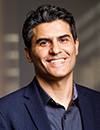 Mehdi Nikkhah is currently an Associate Professor of Biomedical Engineering at Arizona State University (ASU). He completed his postdoctoral fellowship training at Harvard Medical School and Brigham and Women’s Hospital. He received his B.S. in mechanical engineering and M.S. degree in biomedical engineering from Tehran Polytechnic University, followed by a Ph.D. in mechanical engineering from Virginia Tech. His research focuses on integrating micro- and nano-scale technologies, innovative biomaterials, and single-cell resolution analysis to better understand the mechanisms of human disease progression and to develop regenerative medicine strategies for treating organ/tissue failure. Dr. Nikkhah has published more than 80 journal articles (over 11,000 citations, H-index of 48), 8 book chapters, and 100 peer-reviewed conference papers, and holds 10 US patents and invention disclosures. His translational research has been supported by multiple federal, state, and local agencies, including NSF, NIH (R01, R21) and Arizona Biomedical Research Consortium. He has received numerous recognitions and prestigious awards throughout his career, including induction into the American Institute for Medical and Biological Engineering (AIMBE) as a Fellow, induction into the National Academy of Inventors (NAI) as a Senior Member, NSF CAREER Award, BMES-CMBE Young Innovator Award, Flinn Foundation Award, ASU Biomedical Engineering Outstanding Assistant Professor Award, and others. Along with his research endeavors, Dr. Nikkhah is very passionate about educating the next generation of students and scholars, with specific attention to minority and underrepresented groups in science and engineering. He has trained more than 75 trainees, including postdoctoral fellows, PhD/MS students, and undergraduate researchers from diverse backgrounds, in his lab. |
Gregory NordinProfessor, Brigham Young University Professor Greg Nordin joined the faculty of the Electrical & Computer Engineering Department at Brigham Young University in 2005. From 1992 to 2005 he was at The University of Alabama in Huntsville (UAH) where he was the founding director of the university's Nano and Micro Devices Center, which was created as an independent research center by the University of Alabama System Board of Trustees. While director of the center, he created a 7,600 sq. ft. cleanroom facility for nano and microfabricated devices to pursue research activities in photonics, MEMS, microfluidics, and sensors. Prof. Nordin has led numerous large research programs, and has been principal investigator on research grants from government and industry totaling $18M. He is the recipient of the National Science Foundation CAREER award (1996) for promising young faculty, and twice received the UAH Outstanding Researcher Award as well as the UAH Foundation Award for Research and Creative Achievement. Prof. Nordin's current research is focused on developing 3D printing for microfluidic devices and applications. In March 2018 Prof. Nordin gave a TED talk on his group's work, which is available at https://www.youtube.com/watch?v=T122fzOEVYE. |
Juan SantiagoCharles Lee Powell Foundation Professor, Stanford University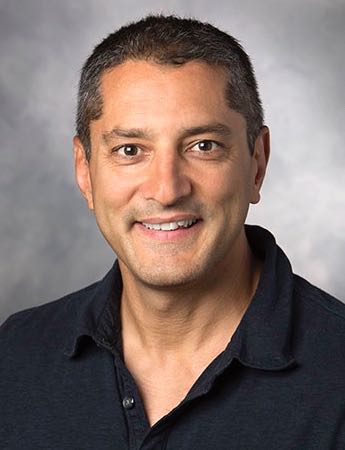 Juan G. Santiago received his MS and PhD in Mechanical Engineering from the University of Illinois at Urbana-Champaign in 1995. He holds the Charles Lee Powell Foundation professorship at Stanford and serves as Vice Chair of the Mechanical Engineering Department. His research includes the development of microsystems for on-chip biochemical analysis, microfluidic cell assay systems, two-phase flow devices, and capacitive deionization technologies. Applications of this work include molecular diagnostics, basic studies of cell biology, electronics cooling, and the production of drinking water. He is a Fellow of the American Physical Society, a Fellow of the American Society of Mechanical Engineering, and a Fellow of the American Institute for Medical and Biological Engineering. In 2022, he was elected to the American Academy of Arts and Sciences and to the National Academic of Inventors. He serves as the Editor-in-Chief of the journal Flow. His work is cited about 1500 times per year (Google Scholar h index of 86). He has authored and co-authored over 220 journal papers and 250 conference papers, and he is a named inventor in 58 issued patents (26 of which are currently licensed). |
Lydia SohnAlmy C. Maynard and Agnes Offield Maynard Chair in Mechanical Engineering, University of California-Berkeley Lydia L. Sohn received her A.B. (Chemistry and Physics, 1988), M.S. (Physics, 1990), and Ph.D. (Physics, 1992) from Harvard University. She was an NSF/NATO postdoc at Delft University of Technology and a postdoc at AT&T Bell Laboratories (1993-1995). Sohn was an Assistant Professor of Physics at Princeton University prior to joining the Mechanical Engineering Dept. at UC Berkeley in 20013. Her work focuses on developing quantitative techniques to probe single cells. Sohn has received numerous awards including the NSF CAREER, Army of Research Young Investigator Award, DuPont Young Professor Award, and a Bakar Fellowship. In 2014, she was one of five winners in the “Identifying Platform Technologies for Advancing Life Sciences Research” competition for her work on Node-Pore Sensing. Most recently, she was elected a Fellow of the American Institute for Medical and Biological Engineering. |
Steve SoperFoundation Distinguished Professor, Director, Center of BioModular Multi-Scale System for Precision Medicine, The University of Kansas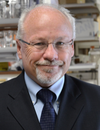 Prof. Soper is currently a Foundation Distinguished Professor in Chemistry and Mechanical Engineering at the University of Kansas, Lawrence. Prof. Soper also holds an appointment at Ulsan National Institute of Science and Technology in Ulsan, South Korea, where he is a World Class University Professor. He is also serving as a Science Advisor for a number of major worldwide companies. Prof. Soper is currently on the Editorial Board for Scientific Reports and Journal of Micro- and Nanosystems. |
Steve SoperFoundation Distinguished Professor, Director, Center of BioModular Multi-Scale System for Precision Medicine, The University of Kansas Prof. Soper is currently a Foundation Distinguished Professor in Chemistry and Mechanical Engineering at the University of Kansas, Lawrence. Prof. Soper also holds an appointment at Ulsan National Institute of Science and Technology in Ulsan, South Korea, where he is a World Class University Professor. He is also serving as a Science Advisor for a number of major worldwide companies. Prof. Soper is currently on the Editorial Board for Scientific Reports and Journal of Micro- and Nanosystems. |
Shannon StottAssistant Professor, Massachusetts General Hospital & Harvard Medical School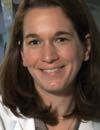 The Stott laboratory is comprised of bioengineers and chemists focused on translating technological advances to relevant applications in clinical medicine. Specifically, we are interested in using microfluidics and imaging technologies to create tools that increase understanding of cancer biology and of the metastatic process. In collaboration with the Toner, Haber and Maheswaran laboratories, we have developed a microfluidic device that can isolate extraordinary rare circulating tumor cells (CTCs) from the blood of cancer patients. We are striving to employ new imaging modalities to extract as much information as possible from these rare cells while pushing the technology further for early cancer detection. Ultimately, we hope that by working in close partnership with the molecular and cell biologist at the Mass General Cancer Center, we can create new tools that directly impact patient care. |
Mehmet TonerHelen Andrus Benedict Professor of Biomedical Engineering, Massachusetts General Hospital (MGH), Harvard Medical School, and Harvard-MIT Division of Health Sciences and Technology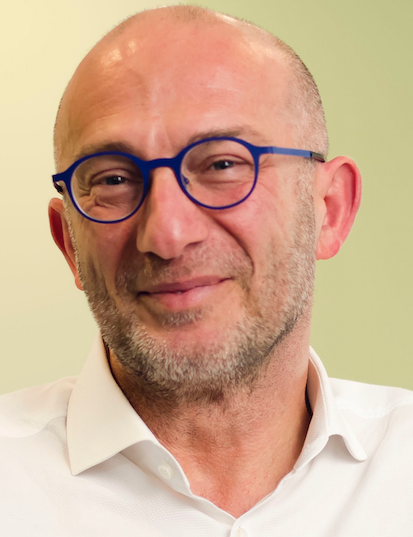 Mehmet Toner is the Helen Andrus Benedict Professor of Biomedical Engineering at the Massachusetts General Hospital (MGH), Harvard Medical School, and Harvard-MIT Division of Health Sciences and Technology. Mehmet received a BS degree from Istanbul Technical University and an MS degree from the Massachusetts Institute of Technology (MIT), both in Mechanical Engineering. Subsequently he completed his PhD degree in Medical Engineering at Harvard-MIT Division of Health Sciences and Technology in 1989. Mehmet is the co-founding Director of the Center for Engineering in Medicine, and BioMicroElectroMechanical Systems Resource Center (BMRC) at the MGH. He is also the Director of Research at the Shriners Hospital for Children Boston. Mehmet holds over 50 patents, has more than 350 publications, and is a co-founder of multiple biotechnology start-ups. Mehmet is a “Fellow of the American Institute of Medical and Biological Engineering”, “Fellow of the American Society of Mechanical Engineers”, and “Fellow of the Society for Cryobiology.” In 2012, he was given the “Luyet Medal” by the Society for Cryobiology. In 2013, he received the “H.R. Lissner Medal” from the American Society of Mechanical Engineering. He is a member of the “National Academy of Inventors” and a member of the “National Academy of Engineering.” |
An-Bang WangDistinguished Professor, Institute of Applied Mechanics, National Taiwan University He is honored as distinguished professor at National Taiwan University since 2020. He became a full professor of the Institute of Applied Mechanics, National Taiwan University in 2001. In the period from 2002 to 2004, he served as the director of Optomechatronics Education Resource center, Ministry of Education, Taiwan, ROC. From 2004 to 2008, he served as the chairman of the display technology Education Program and counselor of advisory office, Ministry of Education, Taiwan, ROC. He has been honored with the 2013 Distinguished Engineering Professor Award granted by Chinese Institute of Engineers (CIE), Taiwan, ROC. From 2014 to 2016, he was elected as vice president of International Society of Coating Science and Technology. His current research interests include advanced coating & 3D-printing technology, microfluidic platform for biomedical and industrial applications, display & optomechatronic systems, and biomimetics. |
David WeitzMallinckrodt Professor of Physics and Applied Physics, Director of the Materials Research Science and Engineering Center, Harvard University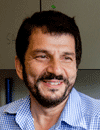 Professor David Weitz received his PhD from Harvard. He worked at Exxon Research and Engineering as a research physicist for nearly 18 years, and then became a Professor of Physics at the University of Pennsylvania. He moved to Harvard at the end of the last century, and is currently Professor of Physics and Applied Physics. He is also the director of Harvard's Materials Research Science and Engineering Center. Several start-up companies have come from his lab to exploit some of the technological applications of his work. |




